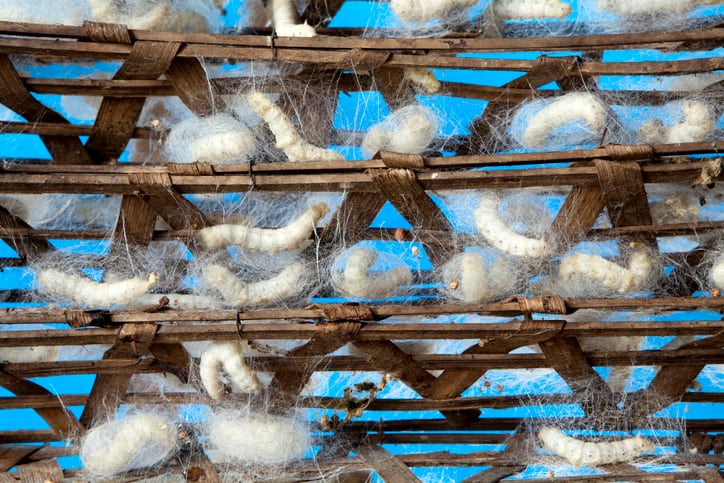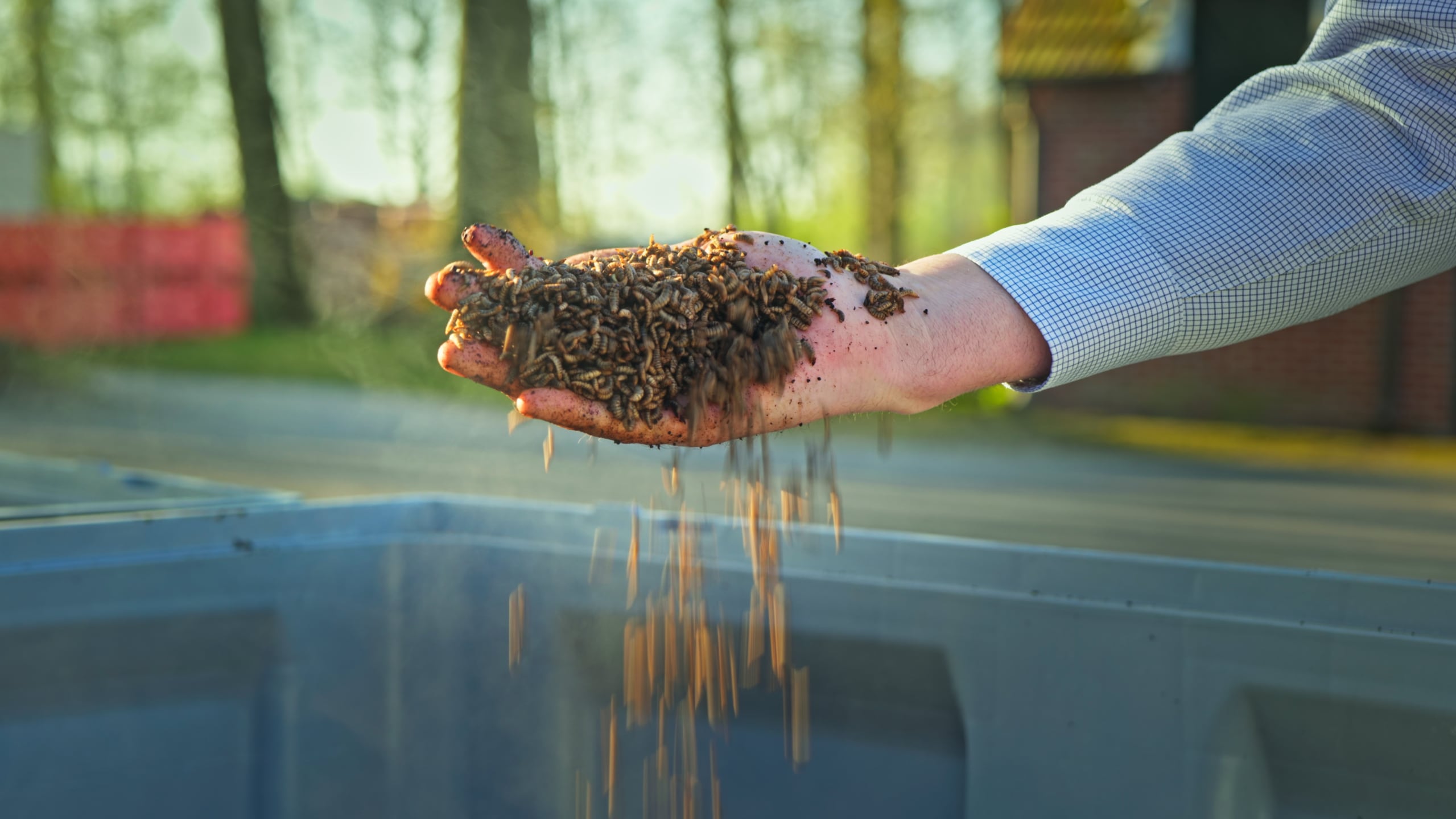Loopworm transforms silkworm pupae into high-value protein to replace traditional feed ingredients with nutrient-rich, planet-friendly alternatives.
The startup is targeting a wide range of applications across industries, from animal feed and pet food to cosmetics and biopharmaceuticals.
It has a facility that can process 6,000 tonnes annually, which is currently operating at 20% capacity.
Today, the firm works with India’s leading players, including CP Feeds and the Ananda Group.
“We are making 100 tonnes of insect derived proteins and fats on a monthly basis. We are currently applying it to the shrimp industry in India. We are seeing repeat orders from India’s leading shrimp producers,” said Ankit Alok Bagaria, Loopworm’s co-founder and CEO.
Its flagship products are LoopMeal Pro and LoopOil, which are derived from silkworm pupae.
According to the firm, they offer superior nutritional value while reducing environmental impact as it requires 200 times less water and 170 times less land than conventional protein sources like soy or fishmeal to produce.
Over the past year, the company has carried out trial shipments to over 20 countries, including those in the US, Europe, South East Asia, and South America.
Bagaria told AgTechNavigator that it will soon be supplying its feed ingredients to salmon and tuna producers as well.
“We’ve secured a 1,000 tonnes per annum order with one of the largest clients in the salmon feed space,” he revealed.
Over the next 12 months, the company is aiming to grow its revenue ten-fold on the back of animal nutrition, which it expects will account for 70% of total revenue.
‘The right price at consistent quality’
Loopworm produces insect protein from silkworm, a by-product of the silk textile industry, as well as black soldier flies (BSF).
Unlike other insect protein companies, it sources the insects instead of farming them in-house.
“The insect protein industry in the last 15 years have only built full stack solutions where they breed the insects, farm the insects in climate-controlled farms, and processing them. The only thing we do differently is that we don’t farm any insects, we’re jus focused on the processing. Because we don’t get into the operations of farming, it has enabled us to grow faster,” said Bagaria.
He said the company currently sources silkworms form 9,000 suppliers and has ample supply for the next three to four years.
As silkworms exclusively feed on mulberry leaves, it is able to ensure the standardisation of its products.
“We have complete traceability for both the insects that we are procuring. We keep a tab on whatever the black soldier fly larvae are eating, and we have mapped it to the nutritional profiles of the black soldier fly larvae at the and which is a fairly standard technique,” said Bagaria.
He added that the firm has been able to keep its prices competitive.
“Essentially, it’s an ingredient and people are not going to pay exorbitant prices for it… Affordability and quality consistency are the major problems in this industry. Demand is not the problem; it is the supply at the right price with quality consistency.”
While the bulk of the business will focus on animal nutrition, include feed and pet food, Loopworm is keen to explore how it can develop more products.
“Nobody would have farmed honeybees if not for the market for honey, no one would have farmed silkworm if not for the market for silk… We see insects as a raw material. They are rich in proteins, fats, and biomolecules,” said Bagaria.
Bagaria told us it is set to launch peptones derived from insects, which is produced simultaneously with chitin.
“This is the case with the value-added products we are developing. They can be used to grow plant products, enhance plant nutrition, or improve plant health. They can also be used in animal nutrition and animal health products.”
The company is currently in the pre-commercialisation stages for its other products.
The future of insect protein
Bagaria expects developing countries in tropical zones to lead the way in the insect protein sector.
“The cost of climate control to farm the insects is very high there. the cost of labor is developed countries is also high. We feel that it is India, Africa, parts of South America, parts of South East Asia, who are going to do great in this space, and you’ve seen it pick up in the last five years.”





